Why You Shouldn’t Change Your Brand Name
A combination of lessons from COVID and the expansion of value and performance-based care options has more organizations than ever considering a rebrand. Adding new service lines or new partnerships can naturally inspire a name change. And, while your organization’s name should reflect your scope of services, what’s most important is that it reflects what truly sets you apart from other providers and similar forms of care. Uncovering these points of differentiation takes time, hard work and, typically, an outside perspective. But, in our experience working with more than 45 providers, those who put in the effort are able to protect and grow their base business while expanding new partnerships faster. Additionally, they see lower turnover and open positions are filled more quickly.
In fact, if you aren’t serious about being different, why even change your name?
About a year ago, we were working with an organization that shall remain nameless. It became clear that rebranding was simply a check-the-box activity. Staff were simply trying to appease a board that wanted a new name to be a springboard to new payer and provider contracts. There wasn’t any interest in doing the serious work of considering the organization’s positioning or differentiators. This provider was looking for us to provide a stamp of approval on a formulaic, INSERT GEOGRAPHY & INSERT ADJECTIVE NAME. They were looking for a shortcut on a road where shortcuts end up costing way more in the long run.
Experience has taught us that organizations that try to skip the hard parts invariably end up confronting the same challenges again and again. Changing out signs, letterhead, scrubs, marketing materials and employee badges is too expensive and too much of a headache to repeat again in three or four years.
If you are considering a rebrand or other alteration to your name, culture, vision, values or other organizational attributes, get serious about digging into differentiation. Get real about what your organization is truly good at, please don’t try to copy somebody else. The stakes are too high and the price is too great to get this wrong or worse, only go half way.
So, how do you find out what makes you different? A great place to start is to ask. Ask your employees, who may have been in several other environments; ask your referrers, who see the entire market; ask patients and families, that daughter who frustrates your staff can tell you; and look at other industries. Culture, service, communication and processes often provide powerful hints at differentiation.
A differentiated brand and business mean that your name, culture, processes and the value you create for patients, families and referrers isn’t the same as any other organization. You know and lean into your strengths. Through differentiation, competitive advantage is built and while it isn’t disruption proof, it does put you far ahead of other alternatives. In a subsequent blog post, I’ll look more closely at disruption in senior care and offer thoughts on where providers should be looking short and long term.
In the meantime, if you’re serious about figuring out what makes you different or you want a second opinion on your rebranding efforts, let’s talk.










